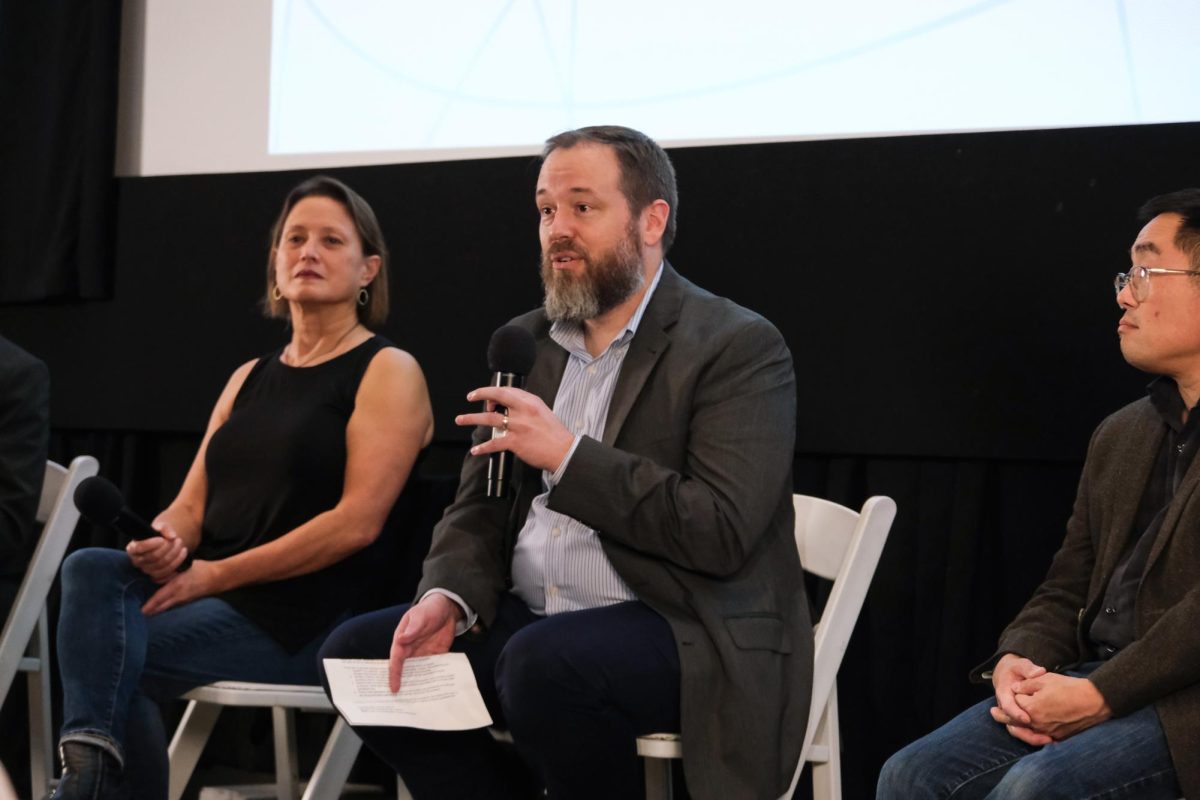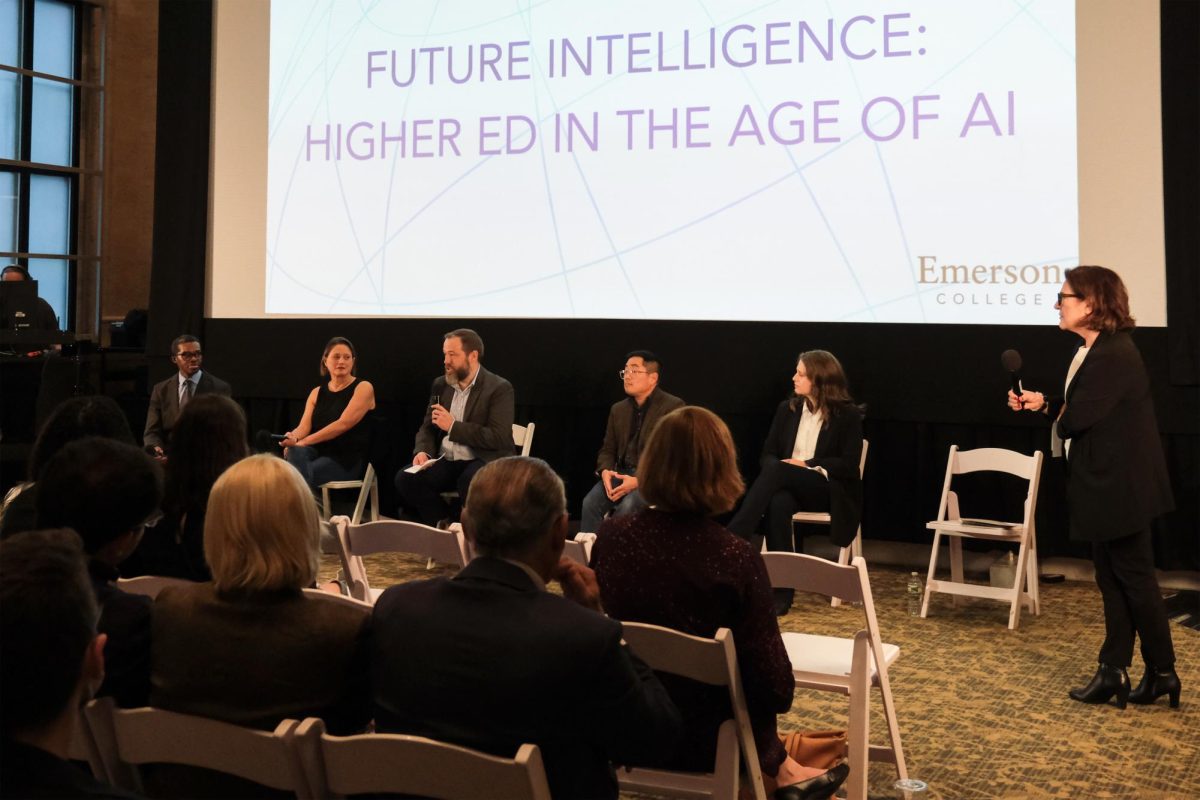At ten years old, Brian Basgen logged on to a bulletin board system, a computer software that allows users to share messages on a network. At 15 years old, Basgen saw the emergence of the World Wide Web through the introduction of the first web browser. Now, at 45, Basgen notes the next big development in technology: artificial intelligence (AI).
“For the first time in 30 years, I am seeing another technology that not only is equivalent to that internet revolution, but I believe is a lot more substantial, and that’s this AI revolution,” Basgen, Emerson’s chief information officer, said. “I can help educate folks and help guide us to an effective path to this new technology that’s exciting but also has some dangers.”

The School of the Arts Fall Assembly, Future Intelligence: Higher Ed in the Age of AI, was organized by Interim Dean of the School of the Arts and Assistant Provost Maria Koundoura. The assembly featured a panel of five professionals who discussed the implications of AI in today’s social and educational climate. The hybrid assembly was held at Bill Bordy Theater and over Zoom.
Among the panelists was Writing, Literature, and Publishing professor Lisa Diercks, who discussed how she interweaves AI into her curriculum. In Diercks’ introductory book design course, she allows students to generate art for their book covers with AI. In her magazine design class, students use AI programs such as ChatGPT to generate “dummy copy” to design around, yet still credit the source with attributions like “Charlie G. Pete.” Diercks encourages her students to participate in discussion posts, noting what type of AI they used and how they used it.
“The more they get to experience it in an academic setting … I think it’s important,” Diercks said during the panel.
During the panel, associate professor and comedy writer Ed Lee shared his rejection of incorporating AI in his classes, saying it “stifles creativity.” Lee referenced the 2023 American actors’ union SAG-AFTRA strike, which involved actors’ and writers’ control over the use of AI.
“For actors, much of what they do is based on their image,” Lee said. “As creatives, we are incredibly anxious over what the future holds.”
A hybrid crowd of about 100 people posed questions for the panelists, some of which regarded the ethics of AI usage. For Basgen, transparency is critical when resourcing AI because “not disclosing that it came from AI is, or can be, a form of spreading misinformation.”
“The distinction is between when you use AI as a replacement for thinking and as a replacement for work,” Basgen said. “That is going to create some problems versus when you use AI to augment your process and augment creativity or to help with ideation. AI can be very powerful. In some sense, it’s like any tool that can be used for both good and bad. We have to be aware of that range of capabilities.”
Continuing the discussion of ethics, School of Communications Dean Brent Smith highlighted the idea of authorship and how ownership is impacted by AI. To Smith, AI’s scope can increase diversity and inclusion within communications. He compared the phenomenon to music where, before recording technology, it could only be experienced live. Innovations within recording and streaming songs allowed for wide-spread accessibility for people to connect with music.
“We’re going to see some of that coming back in ways that empower those who have been distanced from power of expression,” Smith said. “For us at Emerson, that’s vital because our motto is ‘Expression necessary to evolution,’ and I’m convinced AI will allow more expression by people who haven’t been able to maintain it. That will help us evolve more socially, economically, and on and on.”
The discourse around AI’s impact was surprising to theater and performance sophomore Elizabeth Doyle, who attended the panel for a class.
“If we as a society work carefully and diligently enough, AI can be used more to assist than harm or take away,” Doyle said. “That was something I was not expecting, but it made sense the more the panelists spoke on it.”

President of Emerson Jay Bernhardt does not plan for the conversation of AI to end with the panel. He announced the formation of a working group composed of faculty and students. Led by Assistant Provost for Faculty Affairs Brooke Knight, the group will discuss the influence of AI on campus and determine how to navigate its use as an educational tool.
“This is something we have to keep talking about, right?” Smith said. “It’s artificial intelligence, so it is yet another thing of our human creation … Someone’s going to inherit whatever we produce and whatever rules of engagement we establish. We’ve got to be mindful of a future, not only for ourselves today, but the ones who aren’t yet here.”